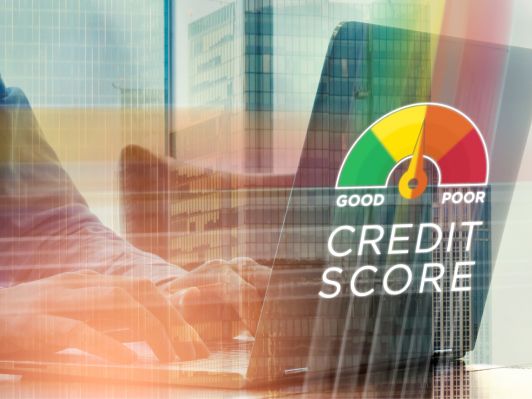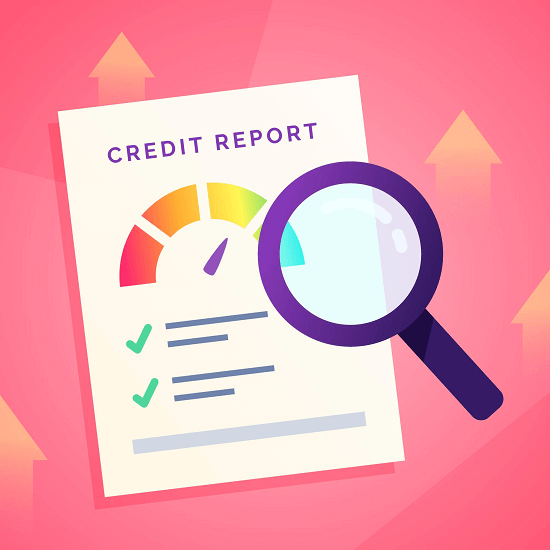When it comes to securing a mortgage for your dream home, one of the most critical factors lenders consider is your credit score. This three-digit number serves as a snapshot of your financial reliability, influencing not only your eligibility for a mortgage but also the terms and interest rates you’re offered. A higher score generally indicates a lower risk, which can lead to better mortgage rates.
Understanding your credit score and its impact on your mortgage prospects is a crucial step in the home-buying process.
What credit score do you need for a mortgage in the UK?

In the UK, there isn’t a specific credit score requirement to qualify for a mortgage. Each lender has its own criteria and scoring system, so the minimum credit score needed can vary. However, having a good credit score generally improves your chances of getting approved for a mortgage and may also help you secure more favourable terms and interest rates.
Credit scores in the UK are typically calculated by credit reference agencies such as Experian, Equifax, and TransUnion. These three credit reference agencies assign a score based on various factors, including your payment history, credit utilization, length of credit history, types of credit accounts, and recent credit applications.
What credit score models are used by mortgage lenders?

In the UK, there are three main credit reference agencies (CRAs) – Experian, Equifax, and TransUnion, each uses a different model to calculate credit scores:
- The Experian scores range from 0-999. A score of 721-880 is considered fair, a score of 881-960 is considered good, and anything above 961 is excellent. This score can give you a good idea of how lenders are likely to view you. The higher your score, the better the chance you have of getting the mortgage you’re after.
- Equifax’s score ranges from 0 to 1000. A score of 439-530 is considered fair, 531-670 is good, 671-810 is very good, and anything above 811 is excellent.
- TransUnion’s score ranges from 0 to 710. A score of 566-603 is considered fair, 604-627 is good, and anything above 628 is excellent.
The higher your score, the better the chance you have of getting the mortgage you’re after at lower interest rates.
What happens if I have a low credit score for a mortgage?
Having a low or bad credit score when applying for a mortgage can present several challenges. Firstly, lenders may be reluctant to approve your mortgage application.
But even if you manage to secure a mortgage with a low credit score, you are likely to face higher interest rates. Lenders offset the risk associated with lower credit scores by charging higher interest rates. This can significantly increase the overall cost of your mortgage, resulting in larger mortgage repayments.
How can I improve my chances of a mortgage?

To improve your chances of getting approved for a mortgage, consider the following steps:
1. Maintain a good credit history
Pay your bills on time, including credit card payments, loan instalments, and utility bills. Late or missed payments can negatively impact your credit score and affect your mortgage application.
2. Manage your debts responsibly
Keep your credit card balances low and avoid taking on excessive debt. Lenders assess your debt-to-income ratio, so having a lower level of debt relative to your income can improve your chances of mortgage approval.
3. Build a positive credit profile
Establish a history of responsible credit usage by maintaining accounts for a longer period. This demonstrates stability and reliability to lenders.
4. Check and correct errors on your credit report
Regularly review your credit reports from the major credit reference agencies (Experian, Equifax, and TransUnion) to identify any inaccuracies or errors. Dispute and correct any incorrect information in credit file that could impact your credit score.
5. Save for a larger deposit
Lenders often look favourably upon borrowers who can provide a larger deposit. Saving a higher percentage of the property’s value demonstrates financial responsibility and reduces the loan-to-value ratio.
6. Demonstrate stable income and employment
Lenders assess your ability to make monthly repayments on the mortgage, so having a stable income and employment history strengthens your application. Avoid changing jobs or careers shortly before applying for a mortgage.
7. Reduce credit applications
Avoid making multiple credit applications within a short period. Each application generates a “hard inquiry” on your credit report, which can temporarily lower your credit score and signal potential financial stress to lenders.
8. Seek professional advice
Consult with a mortgage broker or financial advisor who can offer guidance tailored to your specific circumstances. They can help identify suitable mortgage options and provide recommendations for improving your financial profile.
How can I prepare for a mortgage application and approval process?

Check your credit reports
Obtain a copy of your credit reports from the major credit reference agencies (Experian, Equifax, TransUnion) and review them for any errors or discrepancies. Address any inaccuracies and take steps to improve your credit profile.
Improve your credit score
Pay your bills on time, reduce outstanding debts, make credit payments and avoid new credit applications. This can help improve your credit score over time and make you a more attractive borrower to lenders.
Save for a deposit
Start saving for a deposit well in advance. Lenders typically require a minimum deposit percentage, and having a larger deposit can increase your chances of mortgage approval and help access better interest rates.
Organise your documentation
Gather the necessary documents such as proof of income (pay stubs, tax returns), bank statements, identification documents, and any other required paperwork. Having these ready in advance will speed up the application process.
Pay down existing debts
If possible, pay off or reduce outstanding debts before applying for a mortgage. A lower debt-to-income ratio improves your chances of approval.
Research and compare lenders
Shop around and compare mortgage options from different lenders. Consider interest rates, terms, and fees associated with each loan. A mortgage broker can help you navigate the options and find the most suitable mortgage deal around.
Can I Get a Mortgage With a 550 Credit Score?
Yes, you can get a mortgage with a 550 credit score, but it might be challenging. Experian and TransUnion consider 550 to be a poor credit score for a mortgage amount, while Equifax considers 550 to be good.
You could find a mortgage lender that specialises in providing mortgages to individuals with lower credit scores or may offer options such as subprime mortgages.
Can I Get a Mortgage With a Fair Credit Score?
Yes, it is possible to get a mortgage with a fair credit score. While a fair credit score may not be as high as an excellent or good score, it does not automatically disqualify you from obtaining a mortgage.
Conclusion
Understanding your credit score and how it impacts your mortgage eligibility is crucial when planning to buy a home. A good credit score can open the door to more mortgage options and better interest rates. However, even if your credit score isn’t perfect, there are steps you can take to improve it and increase your chances of securing a mortgage.
By understanding the mortgage process and actively managing your credit score, what credit score you need for a mortgage and how much deposit to get a mortgage you can put yourself in the best position to get a mortgage and secure your dream home.
FAQs
Can I get a mortgage with a credit score of 745?
Yes, you can get a mortgage with a credit score of 745. This high credit score and sits between a Fair and Excellent credit rating, depending on which credit reference agency you check.
Do I need a credit score to get a mortgage?
Yes, having a credit score or credit history is typically required by most mortgage lenders when applying for a mortgage. Lenders use your credit history to assess your creditworthiness and determine the risk associated with lending to you. It helps them evaluate your ability to repay the mortgage on time.
What is the minimum credit score needed for a mortgage?
There is no specific credit score that guarantees eligibility for a mortgage. This is due to the fact that mortgage approval depends on various factors beyond just the credit score, and different credit agencies, and lenders utilize different scoring systems, making direct comparisons difficult.
Disclaimer: The information given above is provided for information purpose only. This is not financial advice.
Related guides:




![How to Use a Credit Card to Build Credit? [5 Steps Guide] How to Use a Credit Card to Build Credit](https://www.drafty.co.uk/blog/wp-content/uploads/2023/10/How-to-Use-a-Credit-Card-to-Build-Credit-218x150.jpg)